Table of Contents Show
Buying an RV is a major purchase that you shouldn’t take lightly. It doesn’t matter whether you’re buying a brand new or used RV, hiring an RV inspector can be a good move.
However, hiring RV inspectors can be very expensive and difficult to coordinate when it comes to scheduling. It might even be tempting to forge ahead with the transaction without having the rig inspected.
So should you skip hiring an RV inspector for your next camper purchase? Let’s see!
What Are RV Inspectors?
An RV inspector is a professional inspector familiar with the various systems that make up an RV. This includes plumbing, roofing materials, electrical systems, and the different moving parts.
Similar to a home inspection, these individuals can go through an RV and test all systems. When complete, they’ll provide the potential buyer with a detailed report on their findings.
The best RV inspectors have certifications and credentials from organizations like The National Recreational Vehicle Inspectors Association (NRVIA).
These types of organizations recruit, train, and test potential RV inspectors. When they graduate from their programs, they’re some of the most knowledgeable individuals when it comes to the many systems inside an RV.
How Much Does an RV Inspection Cost?
Inspections can cost anywhere from a couple of hundred dollars to $1,000+. When it comes to the cost of an RV inspection, you typically get what you pay for.
The costs largely depend on the inspector’s quality and how thorough of an inspection you want for the rig. Some can take a couple of hours, while others can take the entire day.
It’s also important to consider that inspections on motorized RVs will be substantially more extensive than on towable RVs.
As many inspectors are independent business owners, you may be able to negotiate the rate with them.
However, some inspectors work on very tight schedules and budgets and may not entertain negotiating their rates.
Why Should You Hire an RV Inspector?
When you’re spending a massive amount of money on an RV, you want to ensure you’re not buying a lemon.
Most RV inspectors can work their way through an RV and spot issues or even potential issues with relative ease. They might spot one that needs addressing by the seller before you can complete the transaction.
Once you take ownership of an RV, any issues or potential issues become your responsibility.
Hiring an RV inspector can cost hundreds or thousands of dollars, but they can be worth every penny.
They can help you avoid buying an RV that’s nothing more than a money pit or one that ends up spending more time in the repair shop than at a campsite.
Hiring an RV inspector is wise if you want confidence in the transaction.
Do You Need to Hire an RV Inspector?
When buying an RV, you typically have two options – new or used. Whichever route you’re taking, you might wonder if you still need to hire an RV inspector.
Let’s take a look at these two situations.
New RV
There’s nothing like the smell of a new RV fresh out of the factory. However, many RV owners can tell you that even their expensive and brand new RV wasn’t perfect.
Manufacturers and dealers often have thorough pre-delivery inspections on their RVs.
However, things get missed or overlooked during the process, and an extra set of unbiased eyes on a rig might be able to catch an issue.
Reputable dealerships typically have no problems with potential buyers hiring an inspector.
However, we have heard some dealerships being less than accommodating when buyers hire one. This typically never works out in the dealership’s favor, and inspectors catch things that cost the dealership time and money to correct.
On the other hand, you as the customer can buy with confidence.
Hiring an inspector on a new RV can be hit or miss. If you trust that the manufacturer and dealership have done their jobs correctly, you might not need to hire an inspector.
Sometimes the costs are worth the assurance that everything is working correctly.
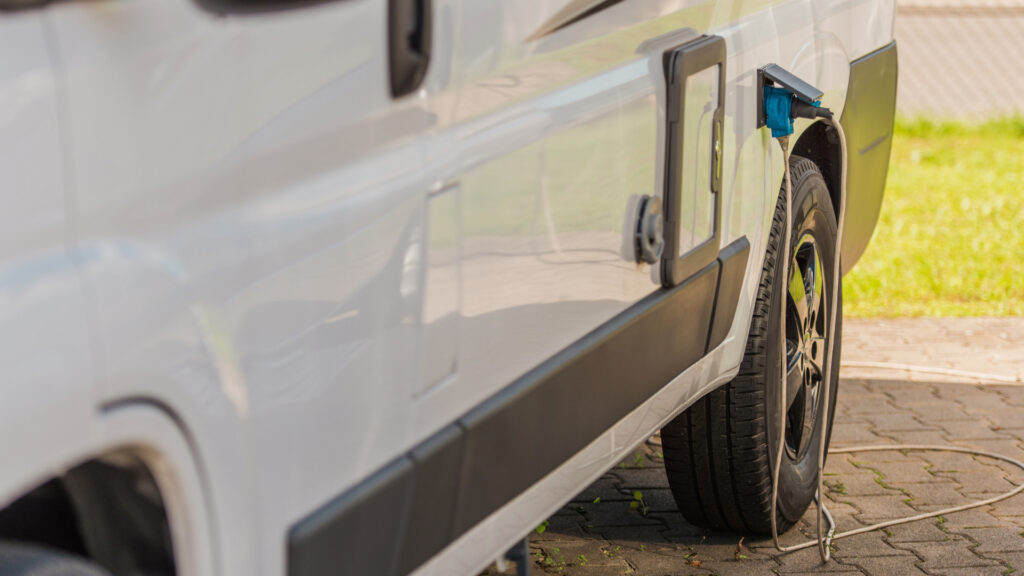
Used RV
Used RVs have massively increased in demand in recent years. If you’re considering a used RV, we strongly recommend hiring one of the many qualified RV inspectors.
They can help you catch any items that may not be obvious to you or the seller. RVs are prone to issues, especially the older they get.
If the seller doesn’t allow you to hire an inspector, you should run from the deal as fast as you can. You never know what they might be trying to hide.
There are some instances where we would say it’s not worth hiring an inspector when buying a used RV. If you’re buying a very old or really cheap RV, it might not be worth investing in an RV inspector.
In these cases, you’re most likely going into the purchase knowing that some issues will need your attention.
Keep in Mind: If you’re looking to buy a used RV, you need to take a look at these Six Keys to Success When Buying a Used RV!
What Do RV Inspectors Look For?
RV inspectors often have a thorough checklist of items they will inspect and test. They typically also have a few common things they look for throughout the inspection.
Let’s see what RV inspectors look for during inspections.
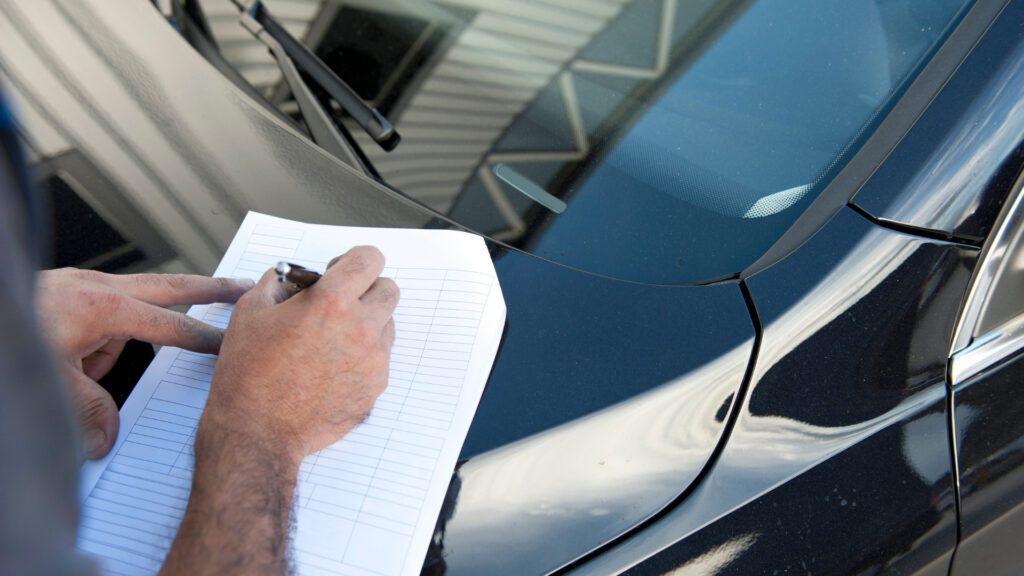
Water Damage
Water damage is like cancer to many RVs. It hides in places undetected for an extended amount of time and can cause serious damage before getting noticed.
Water damage is often the result of failed seals in the roofing or sides of the RV. Because of the potential for mold growth and extensive damage, RV inspectors take water damage very seriously.
Trying to locate where the water is penetrating the RV can be very difficult but is not impossible.
Water damage in an RV isn’t always reason enough to walk away from a transaction, but it should be a major red flag.
Roof Materials
The inspector will most likely climb on top of the rig to inspect the roof materials.
They’ll be looking for cracks in sealant, signs of damage, and any potential areas for water to penetrate the inside of the rig.
Many RV roofs use rubber membranes that easily damage when tree branches and other objects contact them.
Even the slightest bit of contact can cause extensive damage that owners must immediately address to protect the RV.
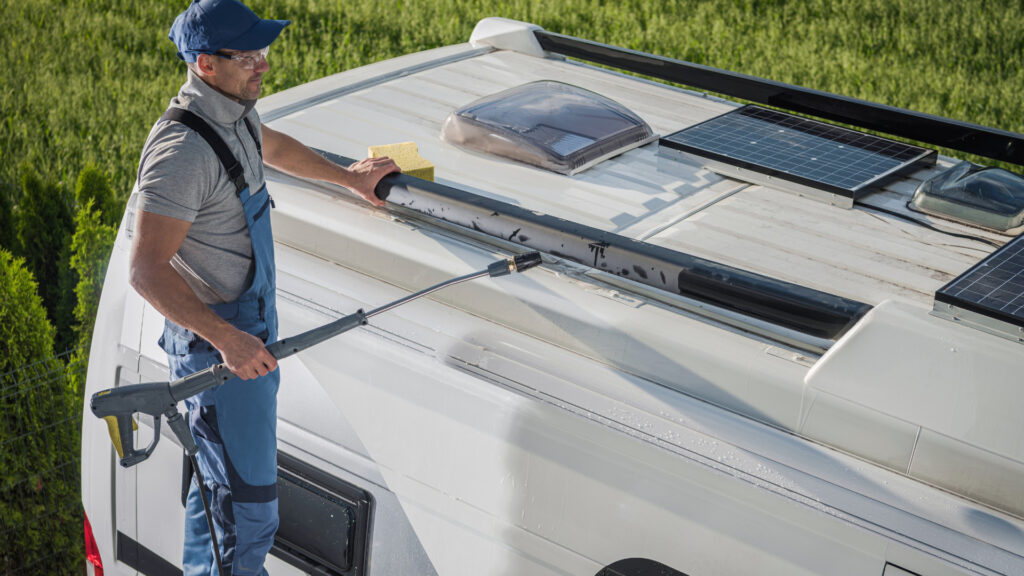
Slide Mechanisms
Many RVs come with slides that expand to maximize the usable space inside of an RV.
However, over time the mechanisms and moving parts can experience issues. Inspectors will often bring in the slides multiple times to look and listen for any potential issues.
If the owner kept up on the maintenance of the slides, there should be no issues. However, a minor alignment issue can cause significant and expensive damage to the slide mechanisms.
A quality inspector will be able to catch signs of a potential failure or lack of maintenance.
Electrical Systems
Behind the walls and compartments of an RV are miles of electrical wiring.
An RV inspector should test every plug, outlet, and switch to ensure they’re in working order. They’ll also typically test to ensure no loose connections or potential for faulty wiring.
However, because much of the wiring is behind the walls and hidden out of sight, there’s only so much they can do.
They will do everything they can to ensure that the electrical systems are in good working order and that you and your family will be safe while using the camper.
Plumbing
Another area that RV inspectors will check is the plumbing system. This includes the sinks, drains, and toilets.
They’ll check for any signs of leaks, cracks, or the potential for a failing water pump or water heater.
If the inspector catches a minor plumbing issue, it can help you to share the information with the seller in hopes that they’ll address the issue before completing the transaction.
On the other hand, if there’s a significant leak or other problems with the plumbing system, you’ll be able to back out of the transaction and avoid owning an RV with the potential for flooding.
Keep in Mind: If you’re doing your own inspection, it would be best to read How Does an RV Freshwater System Work?
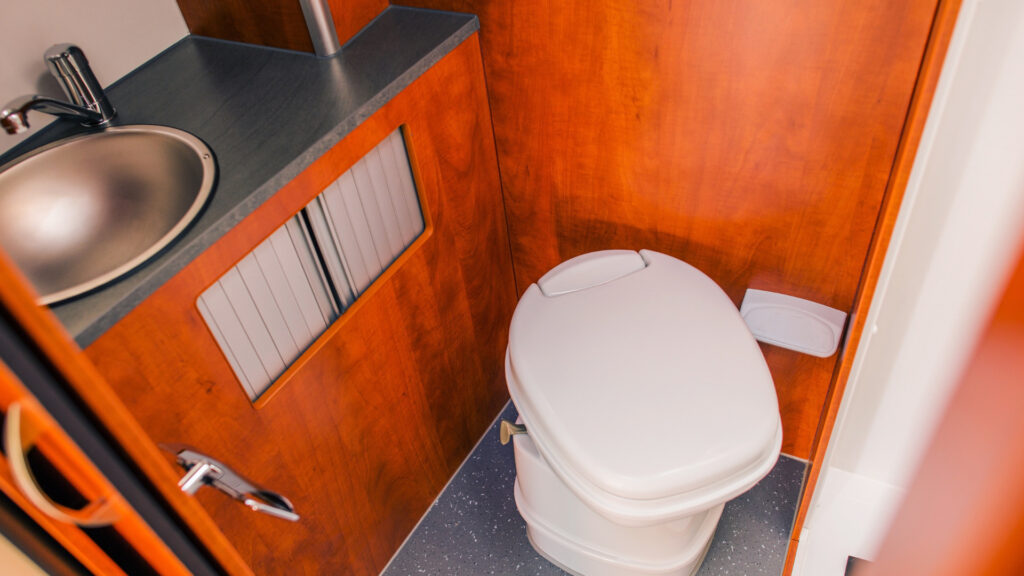
How Do You Find an RV Inspector?
There are plenty of RV inspectors out there. However, some RV inspectors may have experience but don’t have the credentials or official training.
We’re not saying that these individuals don’t know their stuff or aren’t great RV inspectors, but hiring a certified RV inspector can assure you they have a certain level of experience and expertise.
The NRVIA offers an easy-to-use feature on their website to locate a certified inspector near you. You can find a list of certified and master certified inspectors in your area.
The resource also provides the contact information to contact the various inspectors and schedule your RV inspection.
Are RV Inspectors Worth It?
Hiring an RV inspector is a great way to protect yourself as the buyer. Buying an RV can be an exciting adventure as you begin to imagine the endless possibilities of your future adventures as a family.
However, you can get caught up in the excitement and overlook some major issues with an RV that will cost you time, money, and frustrations down the road.




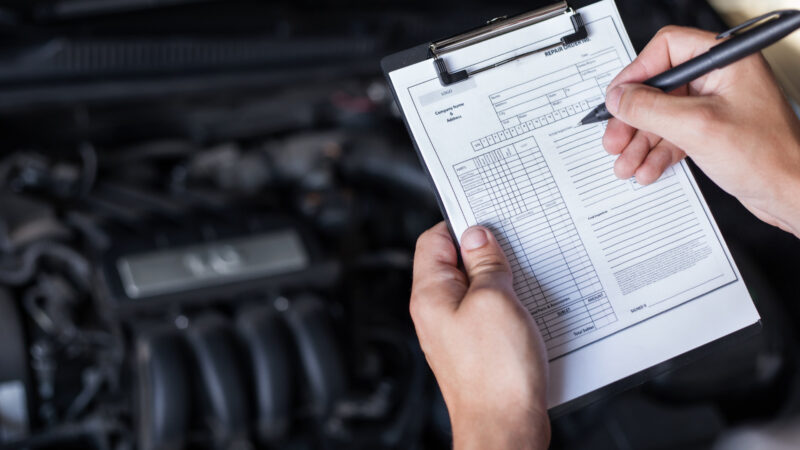

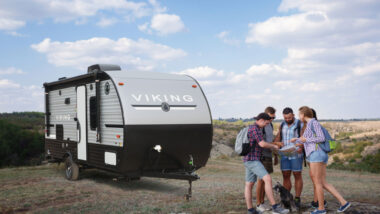
We had our 2014 30 ft Itasca Motor Home inspected after we bought it. Best $700.00 we’ve ever spent. No big issues found but it gave us a baseline and a huge peace of mind. Seller doesn’t know…….long story. The inspectors taught my wife and I so much. Pointed out things we didn’t know to even look at. If I purchase a new rig I know who will be inspecting it. I can not say enough good about our inspection team. Interview your Inspector before you sign up!